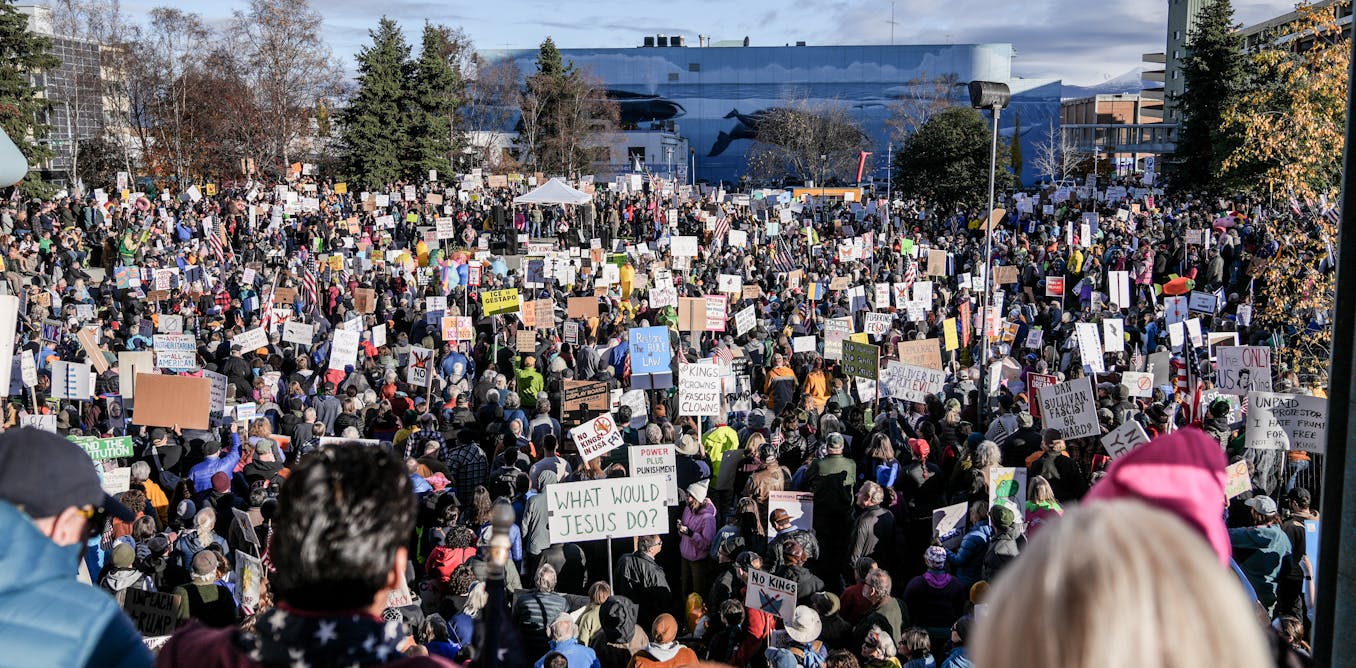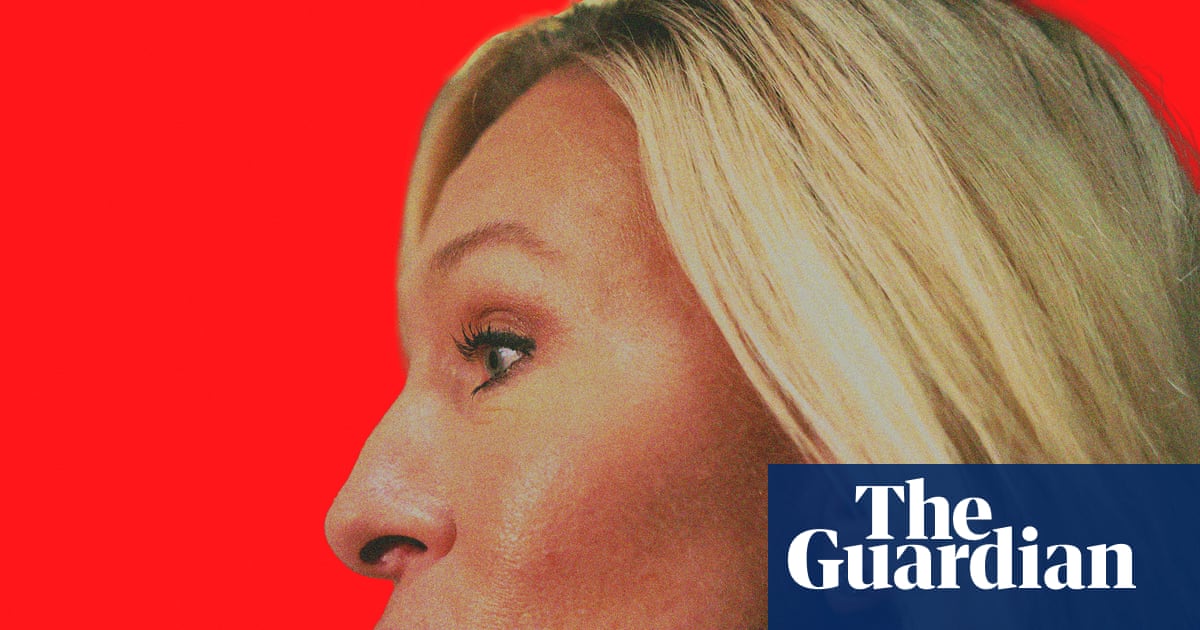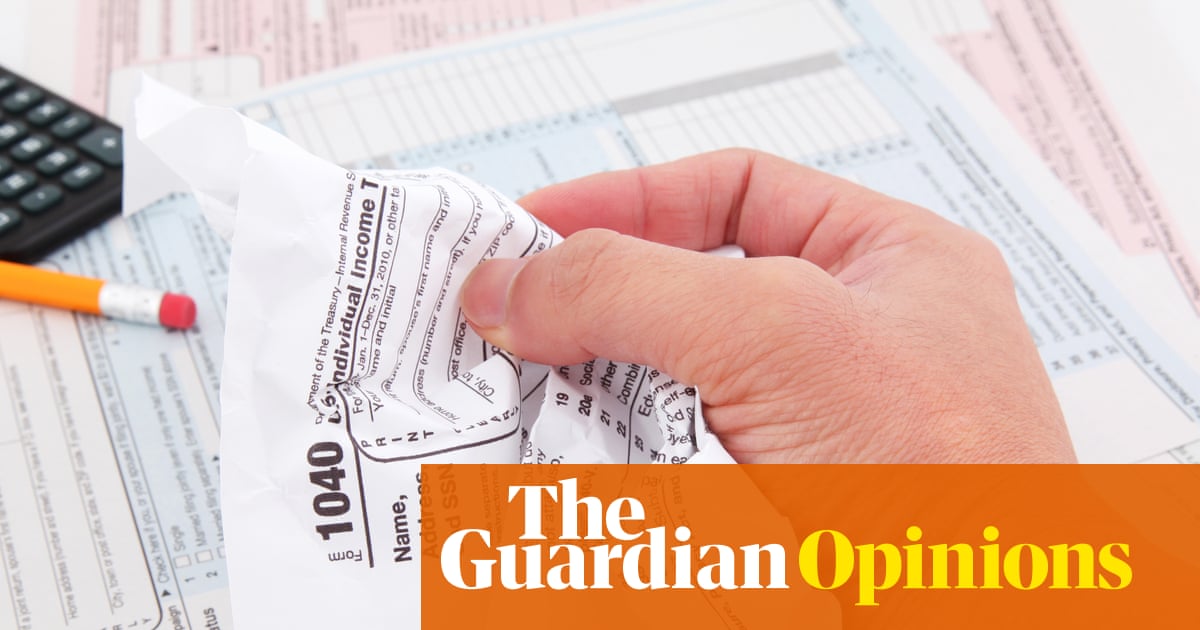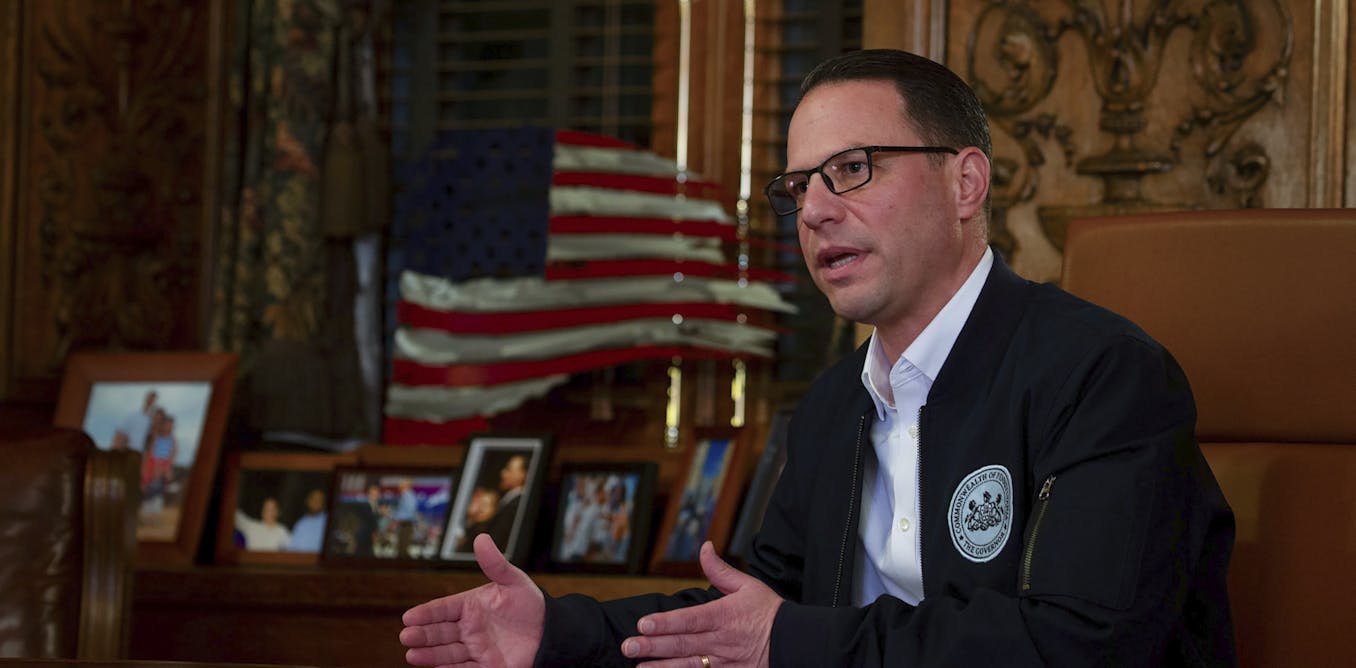In a recent episode of Unnamed and Unbound: Black Voters Matter Podcast, the co-host Cliff Albright spoke with his guests about the power of resilience and community building during a time of uncertainty. Resilience takes different forms, he said, such as mutual aid drives or Washington DC protests featuring go-go music during the national guard’s continued deployment in the capital. “As food is becoming more expensive, and as food programs are being cut, whether it’s Snap or Meals on Wheels, you’ve got a lot of organizations and Black communities that are looking at: ‘How do we feed ourselves?’” Albright, the co-founder and executive director of the voting rights and community empowerment organization Black Voters Matter, said. “The best of our resistance has always included some form of taking care of ourselves.”
After the presidential election in November, the Black Voters Matter team got to work. In late January, Albright, his co-founder LaTosha Brown, and the group’s legal director and chief of staff April England-Albright launched the podcast about voting rights and organizing to help keep Black communities informed. Their goal is also to dispel misinformation by engaging people who may be vulnerable to the Trump administration’s propaganda, Albright said, and need some “persuasion in terms of how to interpret what’s going on around us”. For England-Albright, she’d like for activists to build coalitions that learn from the shortcomings of past movements. Ultimately, Brown hopes that listeners feel a sense of belonging in the podcast and that they are encouraged to build community.
Some of their guests have included Jennifer Wells from the community organizing group Community Change, Ife Finch Floyd from the policy advocacy organization Georgia Budget and Policy Institute, and Deante’ Kyle, host of the pop culture and politics podcast Grits and Eggs.
In addition to the podcast, Black Voters Matter has also given nearly $4m in grants to local organizations including churches, neighborhood associations and NAACP chapters to help organizers canvas and mobilize voters this year. The organization also provides technical support to grassroots groups, such as training them on how to send out mass political text messages. A documentary about Black Voters Matter, titled Love, Joy and Power: Tools for Liberation released this year followed the organization’s work in 2020. Its use as a blueprint for progressive organizers, Albright said, “is critical towards the work that we’re doing now and to understand how we can win” in future elections.
“I think that there is a sobering reality of millions of people in this country that in order to create the nation that we desire, we deserve,” Brown said, “it cannot, under any circumstances, be built on the same foundation of corporate greed and race and white supremacy.”
The podcast’s inception began shortly after the election results poured in the morning after the 2024 presidential race. Brown sat immobile in her hotel kitchen in Washington DC, in shock that Donald Trump won after she sounded the alarm for years. Prior to the election, she and the Black Voters Matter team had travelled throughout the country to engage voters in an effort to build political power among Black communities.
A wave of emotions ranging from betrayal to bitterness and then fear washed over her. “I just felt all of the weight of this Black woman being rejected when she was the best and the most prepared. She was the most patriotic. She was the most transparent,” Brown said. “It was like white privilege, dancing in your face.”
“Do we not know what we’ve done?” Brown recalled wondering as she continued to watch the election results come in. She wanted others to know that they weren’t alone in their sense of despair. “I see our podcast like a lighthouse in the storm,” Brown said. It provides a space to discuss organizing strategies in the current sociopolitical environment.
Ultimately, current movement builders are creating more clandestine networks similar to the Underground Railroad, said Brown.
“What we’ve decided is we’re going to focus on our own wellbeing and creating alternatives for our community and for those who really want to see a multiracial democracy. So what we’re going to do is we’re going to keep building. We’re organizing, and when the time is right, you will know we’re there.”
For England-Albright, the podcast helps amplify Black Voters Matter’s coalition building by hosting guests from other community empowerment organizations. “So often in this country policy has not exemplified that we matter,” England-Albright said. “We’ve always wanted to serve as a beacon of hope and light that we do matter in this country, regardless of policy.” Her personal experience working in the government has informed her view on Trump’s second term.
As a former supervising attorney for the Department of Education’s office for civil rights during Trump’s first term, she said that she has an insider’s view into how the Trump administration has weaponized the powers of the executive branch in his second term. Project 2025, a conservative agenda published by the rightwing thinktank the Heritage Foundation, laid the blueprint for the Trump administration “to radically reduce the civil servants for the federal government and replace them with individuals who would pass a loyalty test,” England-Albright said. “The reason why he did that was because civil servants played a major role in essentially preventing and halting some of the darker things he wanted to do originally.”
To survive Trump’s second term, England-Albright said that activists must build coalitions unlike “we’ve ever had before”. In the past, organizations were often singularly focused on issues, such as saving the environment or protecting voting rights. But this time requires an amalgamation of forces, she said: “We have to find a way to merge all of our individual desires or top button issues to become one, to create the kind of wall that is going to be necessary in this moment.”
She wants to see progressives create a long-term strategy that ensures their policies survive in rightwing administrations. “Where is the progressive Project 2025?” She asked. “We have to create permanent laws, whether it comes in constitutional amendments, I don’t care, but we’ve got to do something that makes sure that our voices are permanent in this country.”
Amid his disappointment about the current state of politics, Albright retains a sense of optimism by acknowledging that a fight is needed to get through the turbulence and pain. In the fifth and sixth episodes of Unnamed and Unbound: Black Voters Matter Podcast released earlier this year, Albright spoke to guests at a gathering at Alabama’s Dallas county courthouse to commemorate the 60th anniversary of Bloody Sunday. On 7 March 1965, Dr Martin Luther King Jr led thousands of nonviolent civil rights marchers who were brutally beaten by law enforcement as they crossed the Edmund Pettus Bridge in Selma, Alabama. “When I say love, you say power,” Albright said in a call and response with attendees. Love and power, Albright told the audience, is at the center of his work at Black Voters Matter. That weekend, Selma residents discussed their hopes and fears, focusing on the effects of gun violence on their community.
“I personally often will call on Dr King’s quotes about love and power: ‘Power without love is reckless and abusive, and love without power is sentimental and anemic. Power at its best is love implementing the demands of justice,’” Albright said. “So as long as we can be rooted in that; not the sentimental and anemic love, the love that’s bolstered by power, then we can get through this.”

 German (DE)
German (DE)  English (US)
English (US)  Spanish (ES)
Spanish (ES)  French (FR)
French (FR)  Hindi (IN)
Hindi (IN)  Italian (IT)
Italian (IT)  Russian (RU)
Russian (RU)  3 hours ago
3 hours ago
























Comments